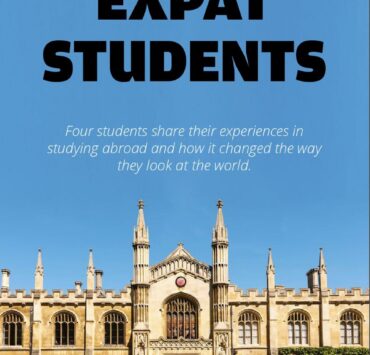This article was first published in 2015 in Issue 9th of TFEM.. The author Wilfred Dominic Josue believes that the Philippines’ political system is in dire need of reform and could learn a lot from Germany. He finished his master’s degree in politics and German post-war history at the Free University Berlin. He now works as an educational assistant in Berlin.
Most Filipino students in Germany are scholars. I, on the other hand, have to finance my studies and living expenses on my own -from applying for a Schengen Visa, to enrolling, finding a place where I can stay and paying for all my basic needs. Let me tell you my story.
My greatest motivation
My master’s programme focuses on politics and German post war history. The classes, exams, and papers are all in German. Why I took an MA in German language, you ask? When I was still studying political science at De La Salle University (DLSU) in Manila, I had a class called comparative government and in that class I was introduced to the complexity of the German political system. I was amazed how the democracy in this country is mature enough to function well. I also learned that their democracy is rooted in its political party system and how parties collaborate with each other to form a government and work towards their parties’ collective promises. I was just so inspired that I told myself that someday I will study in Germany and study their system further because there could be something that the Philippines can learn from! I was young and ambitious back then. I told myself that I will be studying it in German so that I can understand very well the system even the smallest details.
After college, I took a slight diversion from my political science track and started learning German at the Goethe– Institut Philippinen. After three years of studying, I participated in the teacher training program of Goethe. From 2009 to 2014, I taught German in different universities and institutions in Manila. All this time, I was saving up enough money just in case I won’t get a scholarship.
In my mind, one way or another, my dream has to be fulfilled! I did some research and discovered that studying in Germany is not that expensive compared to studying in Paris, London, or Tokyo. Some German universities don’t have tuition fees.
My application was accepted by the Free University of Berlin (FUB). I applied for a student visa at the German Embassy. After two months, I got my visa and flew to the Land of Ideas in
January 2014.
Living alone
In the beginning it was a struggle settling down as a foreign student -from opening a bank account, to navigating your way around the city, registering at the local city hall, looking for a job and doing all of this while the semester is ongoing. I thought they’re necessary to gain real independence. It helped that I spoke the language, allowing me to get around the city fairly easily and get to meet more people.
It is my first time to live alone, far away from my family. It is but natural to feel homesick. Good thing I eat rice almost every day and there is the Internet that I can see and talk to my family anytime I want. I don’t feel the intensity of being homesick.
Being alone is also a challenge especially in terms of budgeting my monthly expenses. I normally spend around 600 euros a month to pay for my rent, health insurance (which is a
requirement for enrollment), groceries and cultural activities such as watching movies, theater shows, museum visits, clothes, or books! I have Filipino friends here who help me especially when I need small stuff such as cooking utensils, etc.
I live in a student dormitory. In the place where I am staying there is a big apartment with six rooms for each student and a shared kitchen, toilette and shower. My housemates come from different countries like Germany, Indonesia, Pakistan and Russia. It is just enriching to talk to them while eating food from their own homeland. I like eating so it is never a problem with me if I eat German or any other international cuisine. But what I like most about having international friends is the fact that I learn to open my eyes to different perspectives on world events. Hearing their stories inspires me to broaden my understanding about life and how to better enjoy it.
Life in Berlin
From Berlin, you can take a plane, a bus or a train if you want to go to other German cities like Hamburg, Munich, or Cologne. It is also easy to get to other European cities like Madrid, Paris, or Rome. I am studying on a tight budget thus I am not really travelling much now. I make up for it by experiencing the cultural life in Berlin, which is one of the most diverse and unique in Europe, as much as I can. Here, there are museums of every kind, beautiful architectural buildings, zoos, quiet gardens and lakes, clubs and bars, cheap and expensive restaurants, classical concerts in big halls or at the train stations, historical attractions which will teach you
important world events and of course the Fan Mile where you watch the World Cup Games.
There are a lot of options I can take after finishing my studies. I could go back to the Philippines and teach or work in the government. I could also stay and study further or gain more work experience before I go back to my country. No matter what, one thing is for sure: There would be plenty of options after my studies in Germany and that is just great!



